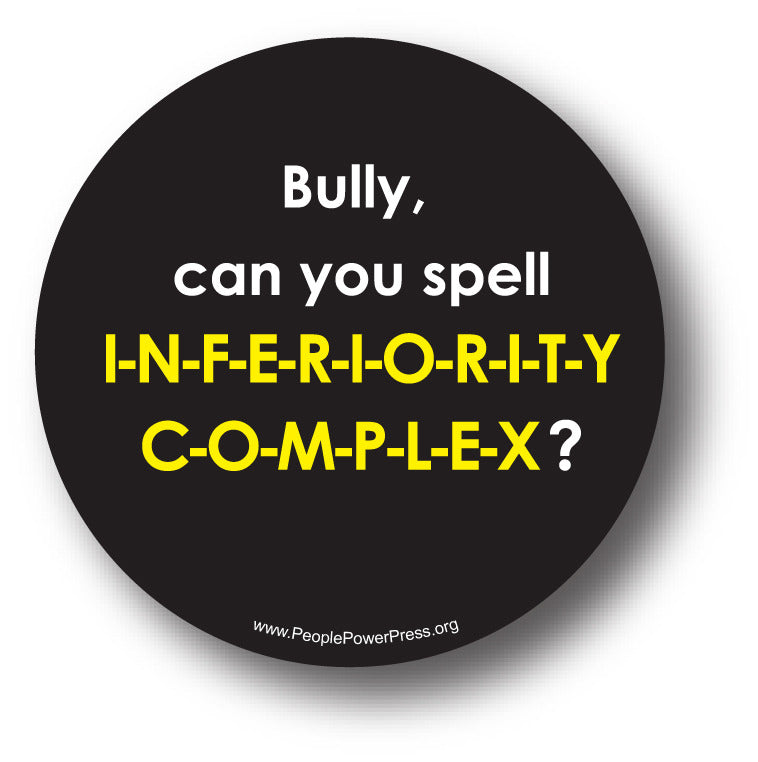Bully, Can You Spell I-N-F-E-R-I-O-R-I-T-Y C-O-M-P-L-E-X? Anti-Bullying Design
Bully, Can You Spell INFERIORITY COMPLEX? Anti-bullying design
Available as a pinback button or fridge magnet in 1-1/4", 2-1/4" or 3"
Wikipedia: Bullying is a form of abuse. It involves repeated acts over time attempting to create or enforce one person's (or group's) power over another person (or group) , thus an "imbalance of power". The "imbalance of power" may be social power and/or physical power. The victim of bullying is sometimes referred to as a target. Bullying types of behavior are often rooted in a would-be bully's inability to empathize with those whom he or she would target.
Bullying consists of three basic types of abuse – emotional, verbal and physical. It typically involves subtle methods of coercion such as intimidation. Bullying can be defined in many different ways. Although the UK currently has no legal definition of bullying, some US states have laws against it.
Bullying ranges from simple one on one bullying to more complex bullying in which the bully may have one or more 'lieutenants' who may seem to be willing to assist the primary bully in his bullying activities. Bullying in school and the workplace is also referred to as peer abuse. Robert W. Fuller has analyzed bullying in the context of rankism.
Bullying can occur in any context in which human beings interact with each other. This includes school, church, family, the workplace, home and neighborhoods. It is even a common push factor in migration. Bullying can exist between social groups, social classes and even between countries (see jingoism). In fact on an international scale, perceived or real imbalances of power between nations, in both economic systems and in treaty systems, are often cited as some of the primary causes of both World War I and World War II.


Share this item: